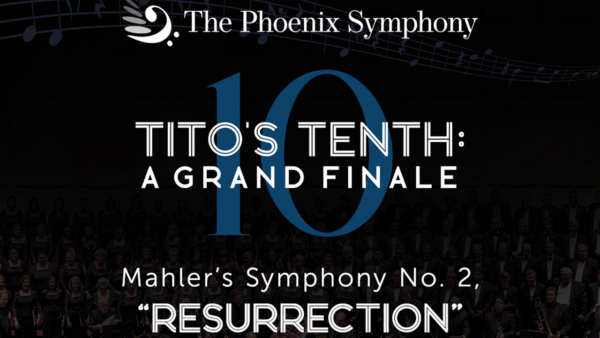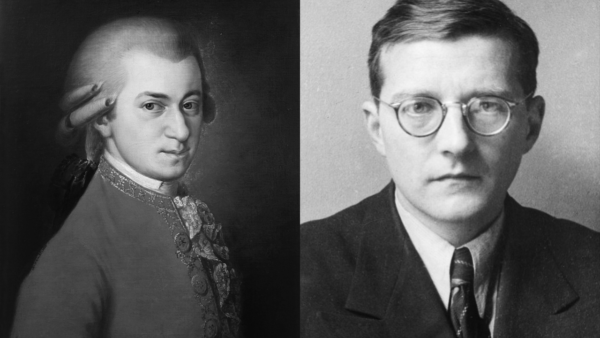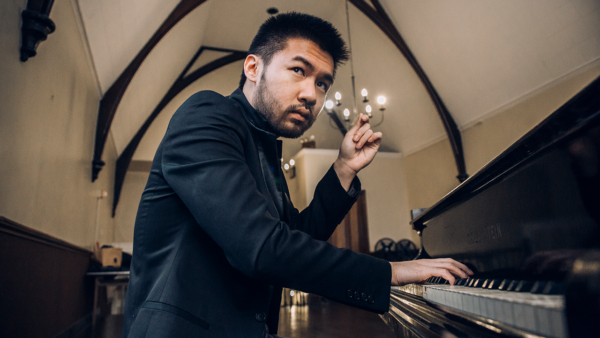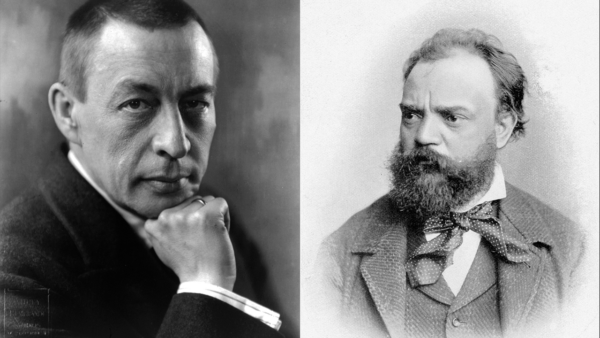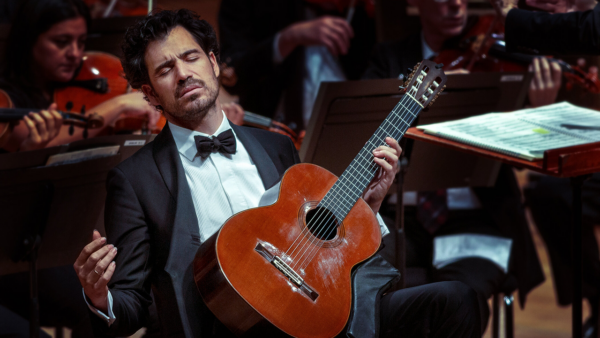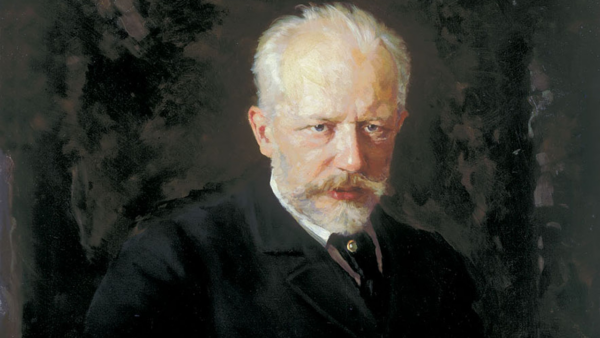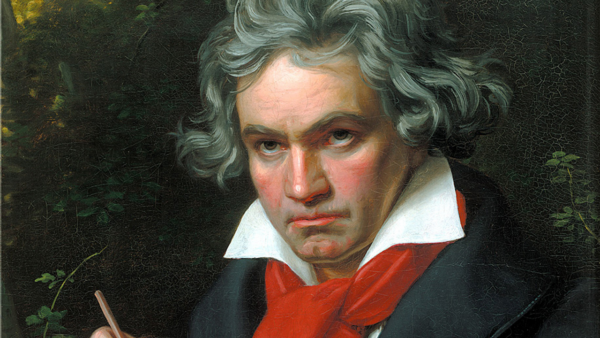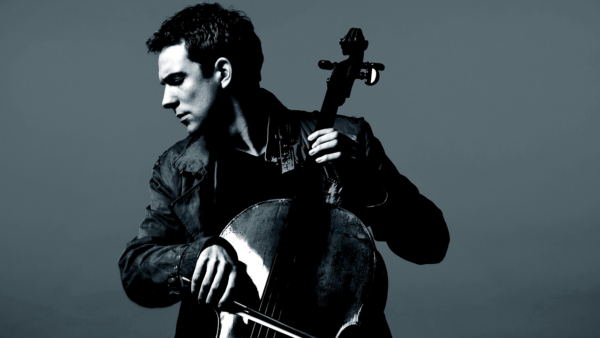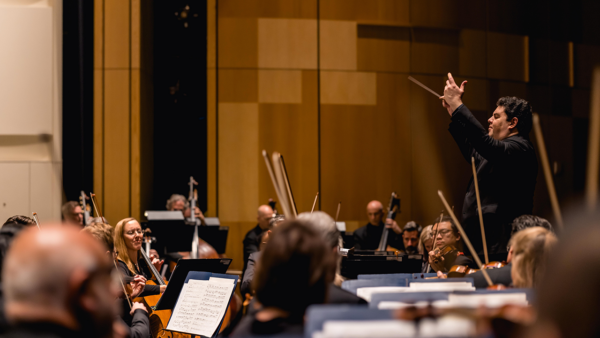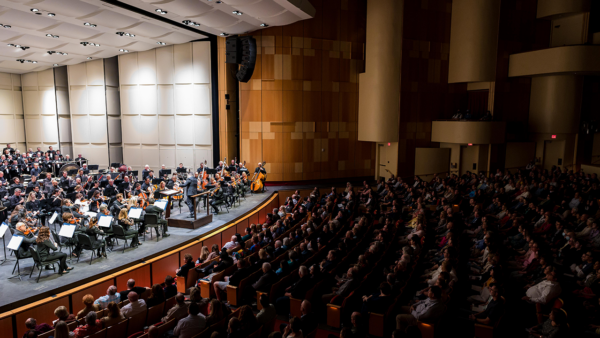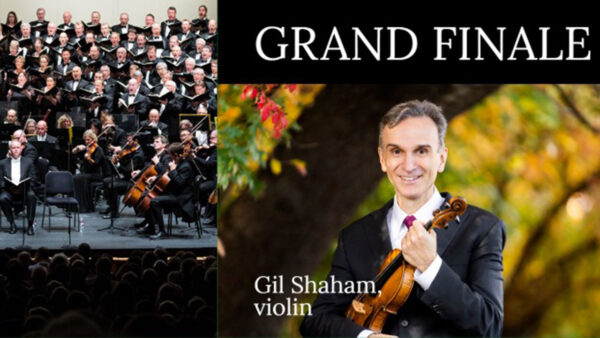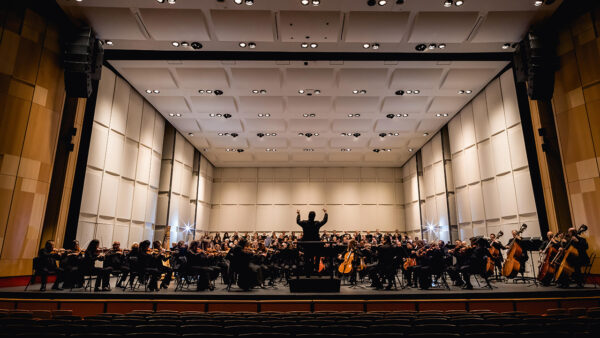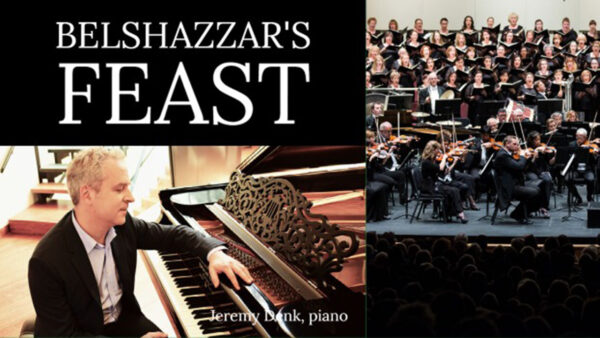Strauss & Beethoven
Nov. 8, 2024
Soaring Strauss, Vibrant Beethoven, and more on the next Phoenix Symphony Broadcast.
The Phoenix Symphony broadcasts its eighth concert in the 10-concert program this Monday at 7:00 p.m. This week, showcasing a new work premiered by the Symphony in 2022, along classic works by Beethoven and Richard Strauss.
Exploring Transformation: Christopher Cerrone’s The Age of Wire and String
Starting the program is Christopher Cerrone’s The Age of Wire and String. This intricate orchestral suite explores themes of transformation and memory, inviting listeners into a richly textured soundscape. Originally conceived as a ballet, Cerrone’s work evolved into a concert piece thanks to conductor Tito Muñoz, who is honored in the dedication.
Inspired by Ben Marcus’s novel of the same name, Cerrone’s composition unfolds in six interconnected “chapters.” Each chapter explores different musical ideas while maintaining a unifying pulse introduced by the vibraphone. As the piece progresses, listeners will experience a mesmerizing array of textures, including airy pizzicato, xylophone accents, and lush chorales. Cerrone’s masterful manipulation of rhythm and theme culminates in a finale that revisits earlier motifs in an artful arch-like structure, offering a compelling listening experience.
The Phoenix Symphony will also present Beethoven’s Piano Concerto No. 4, a work that showcases the composer’s evolving style. Premiered in 1808 during a marathon concert in Vienna, this concerto stands out for its introspective opening—a stark contrast to Beethoven’s more dramatic symphonic works.
This concerto is remarkable not only for its musical complexity but also for its historical context. The Akademie concert during which it premiered included the first performances of Beethoven’s Fifth and Sixth Symphonies, among other works. Despite the challenges of the evening, Beethoven’s Fourth Piano Concerto captivated those who recognized its subtle beauty, offering a glimpse into a composer pushing the boundaries of musical expression.
Through its tender themes and conversational interplay between piano and orchestra, the Fourth Concerto signals a new era in concerto writing, where lyrical depth and emotional connection take precedence alongside virtuosic display. This performance promises to illuminate Beethoven’s genius and provide a captivating experience for listeners.
The concert will also feature Richard Strauss’s Four Last Songs, a deeply moving farewell to life and artistry. Composed in 1948, just a year before his death, these songs reflect Strauss’s own experiences and emotions, as he grapples with themes of aging and mortality.
The Four Last Songs, set to texts by Hermann Hesse and Joseph von Eichendorff, showcase Strauss’s lush orchestrations and lyrical vocal lines. The sequence builds in emotional intensity, culminating in “Im Abendrot,” which evokes the twilight of life through stunning harmonies and poetic imagery. Strauss’s ability to intertwine personal reflection with universal themes makes these songs a profound and timeless contribution to the repertoire.
In “Frühling” (“Spring”), the soprano’s voice soars with hope, while “September” lingers on delicate phrases, embodying the fleeting nature of time. “Beim Schlafengehen” (“Going to Sleep”) offers a serene moment of transcendence, leading to the heart-stopping conclusion in “Im Abendrot,” where themes from Strauss’s earlier works emerge, weaving a rich tapestry of memory and farewell.
Closing the concert is Richard Strauss’s Till Eulenspiegel’s Merry Pranks, a lighthearted tone poem that embodies the spirit of mischief and rebellion. This work narrates the escapades of the clever trickster Till Eulenspiegel, who challenges societal norms with humor and wit.
With masterful orchestration and playful themes, Strauss captures the essence of Till’s adventures, from chaotic rides through market stalls to encounters with pompous officials. The premiere of Till Eulenspiegel showcased Strauss’s ability to blend humor with musical storytelling, resulting in a piece that has become a beloved staple of the orchestral repertoire.
Joining the Phoenix Symphony for this concert are celebrated artists Conrad Tao and Maria Valdes. Tao, a renowned pianist and composer, is praised for his “probing intellect and open-hearted vision.” His multifaceted career includes performances with major orchestras and innovative compositions that blend classical and contemporary influences.
American soprano Maria Valdes is known for her expressive artistry and compelling stage presence. With recent performances including her debut with the Metropolitan Opera, Valdes brings a wealth of experience and emotion to the concert, making her a perfect fit for Strauss’s lyrical works.
Tune In to Experience the Magic
Mark your calendars and be sure to tune in to Arizona PBS on Monday, 7:00 p.m. for this extraordinary concert. The Phoenix Symphony’s performances on Classical Arizona PBS, 89.5 Classical KBACH, and DTV 8.5 will transport you into a world of musical beauty and emotional depth. Don’t miss this chance to experience the magic of live orchestral music from the comfort of your home!
Featured in this episode:
Cerrone – The Age of Wire and String – The Phoenix Symphony; Tito Muñoz, conductor
Beethoven – Piano Concerto No. 4 – The Phoenix Symphony; Tito Muñoz, conductor, Conrad Tao, piano
Tatum – Over the Rainbow – Conrad Tao, piano
Strauss – Four Last Songs – The Phoenix Symphony; Tito Muñoz, conductor; Maria Valdes, soprano
Strauss – Till Eulenspiegel’s Merry Pranks – The Phoenix Symphony; Tito Muñoz, conductor
Rachmaninoff – Five Preludes (excerpts) – Conrad Tao, piano









